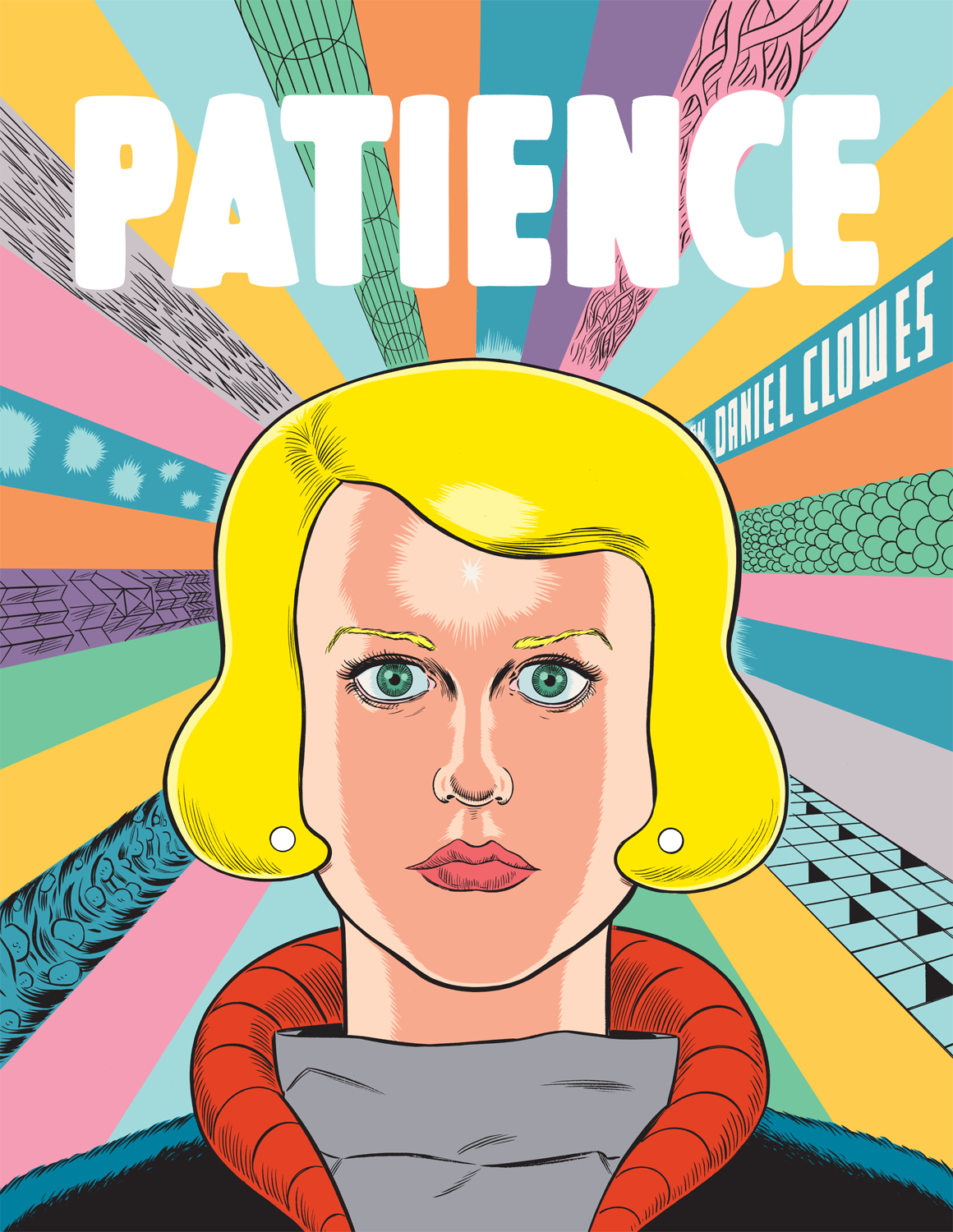Ever since Mike Nichols died in 2014, I’ve wished and wished we had interviewed him in the Review. The HBO documentary Becoming Mike Nichols—an eighty-minute interview conducted by his friend Jack O’Brien—only sharpened my regret. Nichols wasn’t just one of the most important and wide-ranging directors of the last century (and half of the pioneering comedy duo Nichols & May), he was a brilliant explainer of what he did. He and O’Brien discuss his earliest stage productions (Barefoot in the Park, The Odd Couple) and the filming of Who’s Afraid of Virginia Woolf and The Graduate, giving glimpses of his childhood and education and his comedy routines. I could have watched them talk for hours. —Lorin Stein
I spent last Wednesday evening onstage at the Strand with Dan Clowes, promoting his new book, Patience, but I’m glad of the opportunity now to say unreservedly that Patience is a very good book. I’ll even admit that the ending choked me up a bit. The alienation and self-loathing that typically populate Clowes’s work are present here, but they are more plangently explored in this story of time travel and lost love (or, as Clowes has it, “a cosmic timewarp deathtrip to the primordial infinite of everlasting love”), in which Jack, our hero of sorts, is literally in a time in which he does not belong. Patience is a time-travel story that isn’t about time travel—in fact, Clowes wonderfully dispenses with the usual concerns about such narratives—but is instead about commonplace horrors that threaten to dismantle hope, devotion, and happiness. —Nicole Rudick

From Becoming Mike Nichols
Sarah Majka’s debut collection Cities I’ve Never Lived In reads like a timeworn map, with all fourteen stories as points on a circuit through the ruins of Anne’s, her narrator’s, love life. Anne tells every story in retrospect, making her heart’s destruction feel inevitable. In “Saint Andrews Hotel,” she remarks, “We fall out of love only to fall in love with a duplicate of what we’ve left, never understanding that we love what we love and that it doesn’t change.” Majka doesn’t often let Anne register hope, but there’s courage here. Anne is insistent on constant motion, and there’s undeniable momentum to her itinerancy: “We were both moving often during this time, as if it were the best solution to a shattered life: to move from place to place, trying to thread together, if not our marriage and our lives, then something in ourselves.” The title says it all: Cities I’ve Never Lived In is a quest for home. —Daniel Johnson
In his essay “Going out for a Walk,” the English essayist and satirist Max Beerbohm is puzzled by his posh society’s belief that there is something “inherently noble” about the desire to go on a walk; he crabs that “Any one thus desirous feels that he has a right to impose his will on whomever he sees comfortably settled in an arm chair, reading.” Beerbohm has a way with frustrating moments—however inconsequential the vexation may be. If you’ve ever been irked at yourself for becoming too quickly annoyed at something small—a surprise invitation to drinks, say—then you’ll understand the curmudgeonly character Beerbohm plays in this satire, collected last year in The Prince of Minor Writers: The Selected Essays of Max Beerbohm. —Jeffery Gleaves
Given the political turbulence we’ve seen this week, you may not want to read another word about one Donald J. Trump, particularly if you have a heart condition. If you don’t have a heart condition, though, check out the Village Voice’s profile of the Donald from 1979, when, at a mere thirty-two, he was already knee-deep in sleazy real-estate deals. The infamous layer of Teflon around him was then merely a penumbra of turpitude. “Trump won’t do a deal unless there’s something extra—a kind of moral larceny—in it,” a competitor tells the reporter, Wayne Barrett. “He’s not satisfied with a profit. He has to take something more. Otherwise, there’s no thrill.” Later, Barrett takes a ride in Trump’s double-car-length silver chauffeured Cadillac. “I really value my reputation and I don’t hesitate to sue,” Trump tells him. “I’ve sued twice for libel … I’ve broken one writer. You and I’ve been friends and all, but if your story damages my reputation, I want you to know I’ll sue.” Then he puts his smile back on—“but everything’ll be all right. We’re going to get together after the story.” How tragic that the story isn’t over yet. —Dan Piepenbring


















